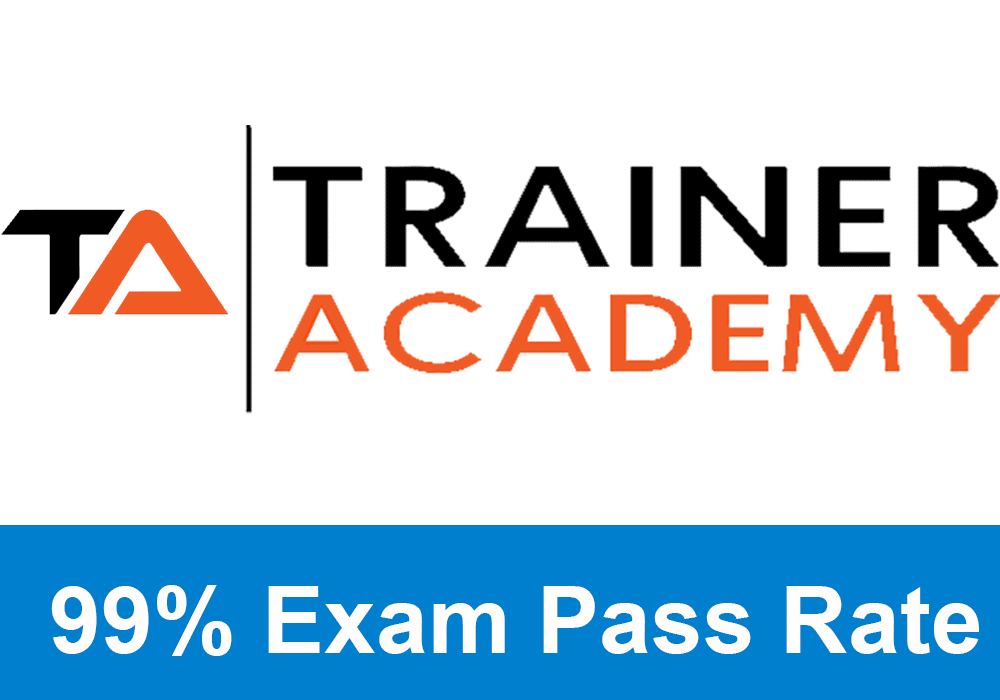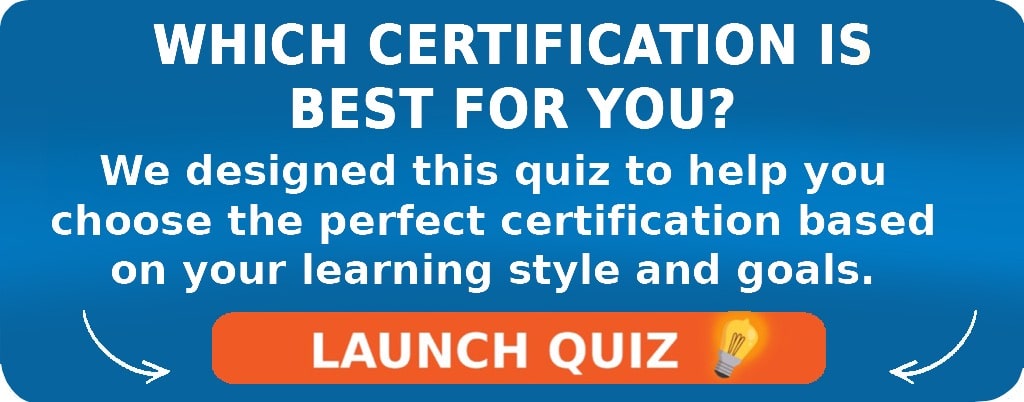In this eye-opening article, I’ll show you how to start a Nutrition Coach career and make a success of it.
I have been there [for over a decade] and will share with you the following:
- Requirements needed
- Responsibilities
- History and much more
Let’s get right into it.

Introduction
What your clients eat will have a dramatic impact on their training results.
Give them the best dietary advice by adding nutrition coaching to your skill set.
Get the low-down on nutrition coaching and discover why and how to launch the next step in your personal training career!
I also highly recommend that you take the quiz and find out which nutrition coach certification is best for your career goals.
What is a nutrition coach?
I’ll be the first person to admit that I still get confused about the difference between dieticians, nutritionists, and nutrition coaches, so let’s clear that up before we go any further!
Dietician
A dietician sometimes called a registered dietician or RD for short, is a certified expert in all food-related.
They are qualified to diagnose and treat nutrition-related illnesses and medical conditions and prescribe condition-specific diets and supplements.
They are experts in medical nutrition therapy.
Becoming an RD takes a lot of time and study, and dieticians must:
- Complete a baccalaureate degree from an ACEND-approved program
- Attend an ACEND-approved supervised clinical program
- Pass the Commission of Dietic Registration Examination
- Maintain their CDR-approved status by accumulating continuing professional education credits.
RDs often work in hospitals and other clinical environments and may also have private practices.
In short, RDs are the heavy hitters in this health and fitness industry avenue.
They are highly qualified and are just a small step away from being doctors.
Legally, you are not allowed to call yourself a dietician unless you hold the relevant qualifications, which can take many years to obtain.
Nutritionist
The term nutritionist is not legally protected, meaning almost anyone can call themselves a nutritionist and advise their clients on what to eat.
While some states insist that nutritionists hold a certification and are licensed by the Board of Nutrition, many do not.
Of those states that do allow individuals to call themselves and operate as nutritionists, there are often no educational, training, or work experience requirements.
Because of this, a large percentage of nutritionists are unqualified.
That means they won’t be able to get professional insurance.
In summary, while the advice of a nutritionist may be well-meaning, and could even be valid and beneficial, it may not come from a qualified source.
And, if things go wrong, nutritionists often have no legal standing or protection.
Nutrition coach
A nutrition coach, sometimes known as a health coach, is a combination of a nutritionist, counselor, nutrition consultant, diet mentor, advisor, and motivator.
While you don’t need to be a nutrition coach to give your PT clients basic dietary advice, becoming one means you’ll have the knowledge and skill to provide them with much more personalized and in-depth information and support.
In addition to giving your clients nutrition advice, you will also be able to:
- Help your clients learn how to develop a better relationship with food
- Help them to develop a healthy body image
- Teach them to create a balanced lifestyle that includes healthy eating and physical activity.
- Empower them to develop the habits necessary for long-term weight management.
- Educate them so they can become self-sufficient and learn to make healthier lifestyle decisions on their own
The skills you’ll learn and the services you’ll be able to provide as a nutrition coach are very compatible with personal training.
Many of your PT clients will come to you because they want to lose weight.
Successful weight loss means paying attention to what you do in and outside the gym, and improper eating could completely undo the benefits of even the best-designed workout.
After all, you are what you eat, right?
Adding nutrition coaching to your skill set means you’ll be much better equipped to help your clients reach their weight loss goals.
I also believe that if you are training someone, you should also be advising them on their diet as these two things are vital for the success of each other.
Nutrition coaching is not just all about weight management either; you’ll also learn how to advise exercisers and athletes with specific nutritional requirements, such as those training for hypertrophy or endurance sports like triathlons or marathon running.
As a nutrition coach, you’ll be able to use dietary and non-dietary approaches to help people reach their health and fitness-related goals.
However, you cannot diagnose or treat medical conditions or prescribe supplements or medication.
The History of nutrition coaching
Interestingly, nutrition coaching started in 400 BC.
Like personal training, nutrition coaching is a popular media topic, which could make you think that it’s a new career option.
The truth is that, just like PT, nutrition coaching has been around for hundreds, if not thousands, years.
The first nutrition coach is arguably the father of modern Hippocrates.
Hippocrates was a Greek philosopher and physician way back in the year 400 BC.
He famously said, “Let food be your medicine, and medicine be your food,” which pretty much sums up the importance of healthy eating.
While Hippocrates’ scientific knowledge may have been lacking, he was one of the first people to directly link food with health and used food to treat a range of ailments.
For instance, he used garlic juice to ward off fungal infections like athlete’s foot, ginger to increase thermogenesis and weight loss, and liver to treat eye diseases.
Hippocrates was well ahead of his time!
Jump forward to the mid-1700s, and British Naval doctor James Lind started prescribing cirrus fruit to sailors suffering from a bleeding disorder called scurvy, which is caused by a vitamin C deficiency.
Exclusive PTP CPT Offers |
||
|---|---|---|
Most Popular Cert | Best Online NCCA Cert | Best Study Materials |
Gold Standard Cert | A Good Option | Best CPT for you?  |
Bear in mind that vitamin C wasn’t actually discovered until the 1930s!
The use of citrus fruits led to British people being called Limeys.
Speaking of the 1900s, dieticians and nutritionists first started working in US hospitals at the beginning of the 20th century.
The US Public Health Service began including dieticians in PHS hospitals in 1919 to improve the health and speed up the recovery of injured WW1 veterans.
Their skills and techniques soon spread out to the general population as more and more people started to take an interest in health, fitness, and exercise.
Nowadays, nutritional coaches work with a wide variety of clients with a range of goals, from weight loss to increased sports performance, to disease prevention.
Hollywood stars hire nutrition coaches to help them get into shape for movie roles, and TV and music stars do likewise.
Everybody eats, even those who don’t exercise, which means a Nutrition Coach has a potentially infinite client base.
Nutrition coaching job description
The National Consortium for Credentialing Health & Wellness Coaches defines health coaches (AKA nutrition coaches) as:
“Professionals from diverse backgrounds and education who work with individuals and groups in a client-centered process to facilitate and empower the client to achieve self-determined goals related to health and wellness.
Successful coaching occurs when coaches apply clearly defined knowledge and skills, so the clients mobilize internal strengths and external resources for sustainable change.”
While that IS an accurate job description, like a bowl of oatmeal without the milk, it’s pretty dry!
My take on nutrition coaching is that it’s where a qualified person teaches and motivates a client on how to make better self-driven decisions about what they eat.
The aim of a nutrition coach is to help their clients develop the habits they need to be able to move forward and eat healthily forever.
That means no crash diets, no exotic supplements, and no weird or unsustainable eating practices.
Part of that job involves busting nutrition myths, exploring options, and providing individualized nutritional advice that is based on science.
Nutrition coaching could be your job if that sounds like what you’d like to do and the type of services your clients will benefit from.
Requirements, duties, and responsibilities
Your first responsibility if you want to become a nutrition coach, is to get certified.
After all, that’s one of the things that separates licensed nutrition coaches from unqualified, unlicensed nutritionists.
There are many courses, including online and traditional learning pathways.
My top six nutrition coach course recommendations are:
- NASM Certified Nutrition Coach
- ISSA Sports Nutrition Certificate
- ACE Fitness Nutrition Specialist
- AFPA Nutrition and Wellness Consultant Certification
- Precision Nutrition Certification
- NESTA Fitness Nutrition Coach
These courses provide full instruction, learning materials, support, and end-of-course exam and/or assessment.
For some, you need to hold a recognized PT qualification to enroll, but for others, the only prerequisite is being over 18.
Each course is structured slightly differently, with the delivery and learning methods varying from one to the next.
Course length can also vary – usually from 6-12 weeks depending on the exact syllabus and how quickly you cover the learning materials.
Price-wise, you are looking at an investment of between $600 to $1000.
I know that sounds expensive, but with an almost infinite number of clients in need of your help, you should have no problem getting your investment back.
Some courses involve e-learning and PDF manuals, while others have real paper textbooks, and you attend classes.
They all have pros and cons, so do your research to determine the best learning pathway for you.
The good news is that every nutrition coaching course covers the same or similar materials, so you won’t miss out on anything important by choosing one-course provider over another.
The things you can expect to learn (and be tested on at the end of your course) include the following:
- Nutritional science
- Nutrition for weight management and sports performance
- Appetite and metabolism
- How food affects your body and emotional state
- How the human body ingests, digests, and absorbs the food we eat
- The macro and micronutrients
- The dangers of fad diets
- How to gather and analyze nutritional information
- How to instigate dietary changes and make those changes sustainable
- How to motivate and coach your nutrition clients
- Ethics and data management/protection
Once you are qualified, and before you set up shop as a nutrition coach, make sure your current personal and professional liability insurance covers your new services.
If they are not, you should get an additional insurance level to ensure you have the coverage you need.
Qualified and insured?
Good!
These are the sorts of things you can expect to do on a day-to-day basis in your new role as a nutrition coach:
Initial consultation
As a nutrition coach, you can expect to spend much of your time discussing food.
After all, it’s something we all have in common.
Your initial consultation will involve gathering information about your client’s diet and attitude toward food.
This will probably involve a combination of a structured interview and some forms.
During this time, you’ll learn about your client’s food likes and dislikes, their overall impression of their current diet, and what they want to achieve.
In return, you may offer some general advice based on the information you receive.
Why only general?
Because you only have an overview of their current diet, and you’ll need more info if you give specific recommendations.
You’ll probably need your client to complete a detailed food diary to get all the details you need.
They can use an app or good old pen and paper, but either way, you need to see exactly what they eat over a week.
Dietary analysis
Once your client has completed and returned their food diary, and you have clarified any of the information you are unsure of, it’s time to get to work and analyze the data.
Exclusive PTP CPT Offers |
||
|---|---|---|
Most Popular Cert | Best Online NCCA Cert | Best Study Materials |
Gold Standard Cert | A Good Option | Best CPT for you?  |
During your analyses, you’ll make notes on things like:
- Meal frequency
- Meal size
- Meal composition
- Calorie intake
- Macronutrient balance
- Micronutrient intake
You may also need to look for triggers and behaviors, such as late-night junk food binges, stress eating, and anything else your client does that may impact their progress.
Make your recommendations
Nutrition advisers generally don’t write diets; it’s too time-consuming, and clients don’t follow them anyway!
Instead, make recommendations, providing your client with lots of workable options.
For example, let’s say your client always has a donut and a large coffee for breakfast.
This is NOT a good start to the day.
Rather than prescribe them a single alternative and leave it at that, as a nutrition coach, you should congratulate them on having breakfast, explain why their current meal is not ideal, and then provide them with several viable alternatives from which to choose.
For example:
- Oatmeal
- A homemade fruit smoothie
- Oatmeal or wholemeal pancakes
- Scrambled eggs on wholemeal toast
Discuss the benefits of reducing sugar and caffeine and how your recommendations will help them on their health and fitness quest.
By the end of your analysis, you should have a list of recommendations based on your client’s diet.
Remember to be non-judgmental and show empathy because food choices are often very personal and may be based on emotions or long-held beliefs, including religious, ethical, and spiritual practices.
If suggestions are impractical, offer hints and tips for making them less so.
For example, if they don’t have time to make oatmeal in the morning, mention how soaking the oats overnight reduces cooking time.
As a nutrition coach, it is your job to help your client eat more healthily, and the easier you can make that, the more likely they are to do it.
Setting goals
As part of your consultation and nutrition diet feedback, you’ll probably need to set your client some diet-related goals too.
Like all goals, these targets should be measurable and achievable.
Goals can be very motivating and will give your client direction and focus.
Common nutrition-related goals include:
- Drink 64 fl. ounces of water per day
- Eat five different fruits and vegetables per day
- Eat a homemade dinner at home five nights a week
- Have a recovery shake after every workout
- Have no more than three candy bars a week
- Not eating after 8 pm
These goals should align with your client’s dietary practices and fitness, health, or weight loss goals.
Follow-up meetings and ongoing support.
Once you’ve spent time with your client and are armed with all the information they need, it’s up to them to go and put it all into action.
Because change can be hard, you’ll probably need to offer (and then provide) ongoing support for the next few weeks or months.
This can take many forms, including:
- Phone/video support and follow-up consultations
- Supportive, motivating emails and texts
- Having them send you a photo of every meal they eat
- Have them complete a new food diary to compare the “before” with the “after.”
- Adjusting their nutritional goals
As well as increasing motivation, one of the aims of any ongoing support is to increase accountability.
Suppose the client knows you are looking over their shoulder, metaphorically speaking, whenever they eat or think about food. In that case, they are more likely to implement your recommendations.
In time, these actions will become habitual, and you will successfully achieve your objective.
It’s safe to say that no two nutrition coaching clients are the same.
Because of our different tastes, preferences, habits, and goals, we all have different attitudes to and needs for food.
That’s why this job involves both nutrition AND coaching – you must adopt the role of counselor and nutritionist.
Benefits of being a nutrition coach
Google “benefits of nutrition coaching,” and you’ll get hit with a ton of results extolling the virtues of hiring one.
Faster weight loss, better health, greater accountability, better workout results, and more energy are the most commonly quoted benefits.
But what’s in it for you – the PT thinking about adding nutrition coaching to your list of services?
Here are what I think are the main benefits of being a nutrition coach!
1. You can offer a complete package to your clients
Your clients will get better results from your workouts if they eat healthily.
The food you eat provides you with energy for exercise and the building blocks your body needs to recover, adapt, and grow afterward.
Ignoring the importance of nutrition is like putting water in your car’s gas tank and then wondering why it won’t run!
Getting your clients to fuel their bodies properly means they’ll get better results from their workouts, and that’s good for you and them.
2. Have a very positive impact on your client’s health
Exercise is good for your health, but what you eat can have an even bigger impact.
You will be in an excellent position to help your clients become healthier – something that they will really appreciate.
3. A new revenue stream
Being a nutrition coach means you can start charging for nutrition consultations and advice.
In contrast, as a PT, you may find you end up giving out your nutrition advice for free.
Having an additional revenue stream can be very welcome, taking the pressure off your PT business.
In addition, nutrition coaching requires a different mindset, approach, and skillset to personal training and could add some much-needed variety to your job.
4. Increased professional standing
Adding to your qualifications by becoming a nutrition coach means you will stand out next to many other trainers who never update their skillset.
Personal training is a competitive business; anything that raises your profile will help you get more clients and charge more for your services – a win-win!
5. Demand for nutrition coaches is on the rise
Obesity rates are rising, as are nutritionally related illnesses, such as type two diabetes and heart disease.
Because of this, the demand for nutrition coaches is high and growing.
An ever-growing number of people need professional help to change their diets and eat more healthily; nutrition coaches are ideally positioned to meet that need.
Doctors don’t have the time or expertise, and registered dieticians usually work in clinical environments or are too expensive.
Nutritional advisers have the time, knowledge, and skills to help, and their prices are usually more competitive.
6. You can work online as well as in-person
A large and growing number of nutrition coaches work almost exclusively online.
If you think about it, this makes perfect sense.
As a nutrition coach, you don’t need equipment or a fixed base of operations.
Instead, you need a way to gather, assimilate, and disperse information.
It’s like what the internet was invented for!
Of course, going face-to-face with your clients can work too.
Still, some people are uncomfortable or embarrassed about their relationship with food and prefer a more impersonal form of communication.
Working online also means working anywhere – even while traveling or from home after you’re done at the gym.
This provides you with a more flexible way to work, which can benefit some trainers.
I firmly believe that if you are training someone, you should provide them with nutrition advice too.
If you are PT looking to expand your skill set, becoming a nutrition coach makes perfect sense.
Nutrition coach statistics
Do you want numbers?
I’ve got numbers!
Here are some up-to-date nutrition coaching statistics.
Remember that nutrition coaches are often called health coaches, so you’ll see both terms in these insights.
Market value: My research has revealed that the total US health coaching market was worth $6.14 billion in 2017, up from up to 15% in 2014.
The forecast is for more growth and should hit $7.85 billion by 2022.
Health coach salary: There are an estimated 109,000 US health coaches with average yearly salaries of $56,370, with the top 10% earning $80,000 or more.
The average hourly rate for nutrition coaching is $65.
Some very successful nutrition coaches charge $300 per hour.
Weight loss coaching: The weight loss coaching market is worth at least $738 million and is projected to grow by 8.5% annually.
Therefore, this market should be worth $1.05 billion by 2022.
Consumer interest in health coaches: According to surveys, 60% of Americans want health coaching, but 80% have never been offered it.
It’s clear from these numbers that making a move into nutrition coaching is good financial sense.
Interest is a high growth market, yet it’s far from saturated.
With so many potential clients, there is plenty of work to go around.
Nutrition coach job outlook
If the statistics are to be believed, and I think they are, there has never been a better time for personal trainers to expand and branch out into nutrition coaching.
The nation’s declining health and increasing BMI mean that nutrition coaches are in high demand and will continue to be so for the foreseeable future.
A job in nutrition coaching can be rewarding personally, professionally, and financially.
Most potential clients don’t need the medical expertise of a registered dietician.
But they want advice from someone more qualified than an unregistered nutritionist.
Nutrition coaches fill that void.
Wrapping up
Great info here and I know you have gained a lot of nutrition coaching career knowledge.
However successful your personal training business is, it’ll be even more so if you add nutrition coaching to your list of services.
Nutrition and exercise combine like apple pie and vanilla ice cream – they complement each other perfectly.
As a personal trainer, you already have your first potential nutrition coaching clients lined up.
Promoting and selling your new service to them will be as easy as asking, “Hey – how’s your diet going?”
Personal training is a growth market, but the indications are that health coaching, which is what nutrition coaching is often known as is growing even faster.
And as well as having the potential to be financially rewarding, I believe nutrition coaching is professionally and personally rewarding.
Take your career to the next logical level by becoming a nutrition coach.
Good luck!
References
- “Dietitian vs. Nutritionist: What’s the Difference?” NutritionEd.org, http://www.nutritioned.org/dietitian-vs-nutritionist.html.
- “National Consortium for Credentialing Health & Wellness Coaches (NCCHWC) Press Release.” NCCHWC, http://www.ncchwc.org/PR043015.pdf.
- “Certified Nutrition Coach.” National Academy of Sports Medicine (NASM), https://www.nasm.org/continuing-education/certified-nutrition-coach.
- “Sports Nutrition Certification.” International Sports Sciences Association (ISSA), https://www.issaonline.com/certification/sports-nutrition-certification/.
- “Fitness Nutrition Specialist.” American Council on Exercise (ACE), https://www.acefitness.org/fitness-certifications/specialty-certifications/fitness-nutrition.aspx.
- “Nutrition & Wellness Consultant Certification.” American Fitness Professionals & Associates (AFPA), https://store.afpafitness.com/nutrition-wellness-consultant-certification-1/.
- “Nutrition Certification Level 1 – Presale List.” Precision Nutrition, https://www.precisionnutrition.com/nutrition-certification-level-1-presale-list.
- “NESTA Nutritionist Certification.” National Exercise & Sports Trainers Association (NESTA), https://www.nestacertified.com/nutritionist/.
- “10 Apps and Software That Nutrition Consultants Can Use With Clients.” American Fitness Professionals & Associates (AFPA) Fitness, https://www.afpafitness.com/blog/10-apps-and-software-that-nutrition-consultants-can-use-with-clients.
- “Nutritional Consultant Coverage Corner.” Trust Risk Management Services, https://www.trustrms.com/About/Coverage-Corner/Nutritional-Consultant.
- “Health Coaching Gains Favor Among U.S. Consumers, Insurers, Employers.” MarketResearch.com Blog, https://blog.marketresearch.com/health-coaching-gains-favor-among-u.s.-consumers-insurers-employers.
- “29-1031 Dietitians and Nutritionists.” U.S. Bureau of Labor Statistics, https://www.bls.gov/oes/current/oes291031.htm.
- “Nutritionist Salary: How Much Do Registered Dietitians Make?” Natural Healers, https://www.naturalhealers.com/nutritionist/salary/.

 Have a question?
Have a question? 


Tyler Read
PTPioneer Editorial Integrity
All content published on PTPioneer is checked and reviewed extensively by our staff of experienced personal trainers, nutrition coaches, and other Fitness Experts. This is to make sure that the content you are reading is fact-checked for accuracy, contains up-to-date information, and is relevant. We only add trustworthy citations that you can find at the bottom of each article. You can read more about our editorial integrity here.